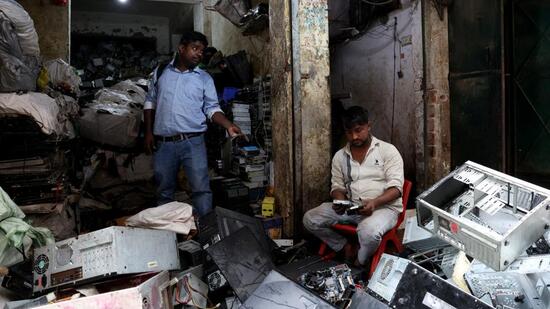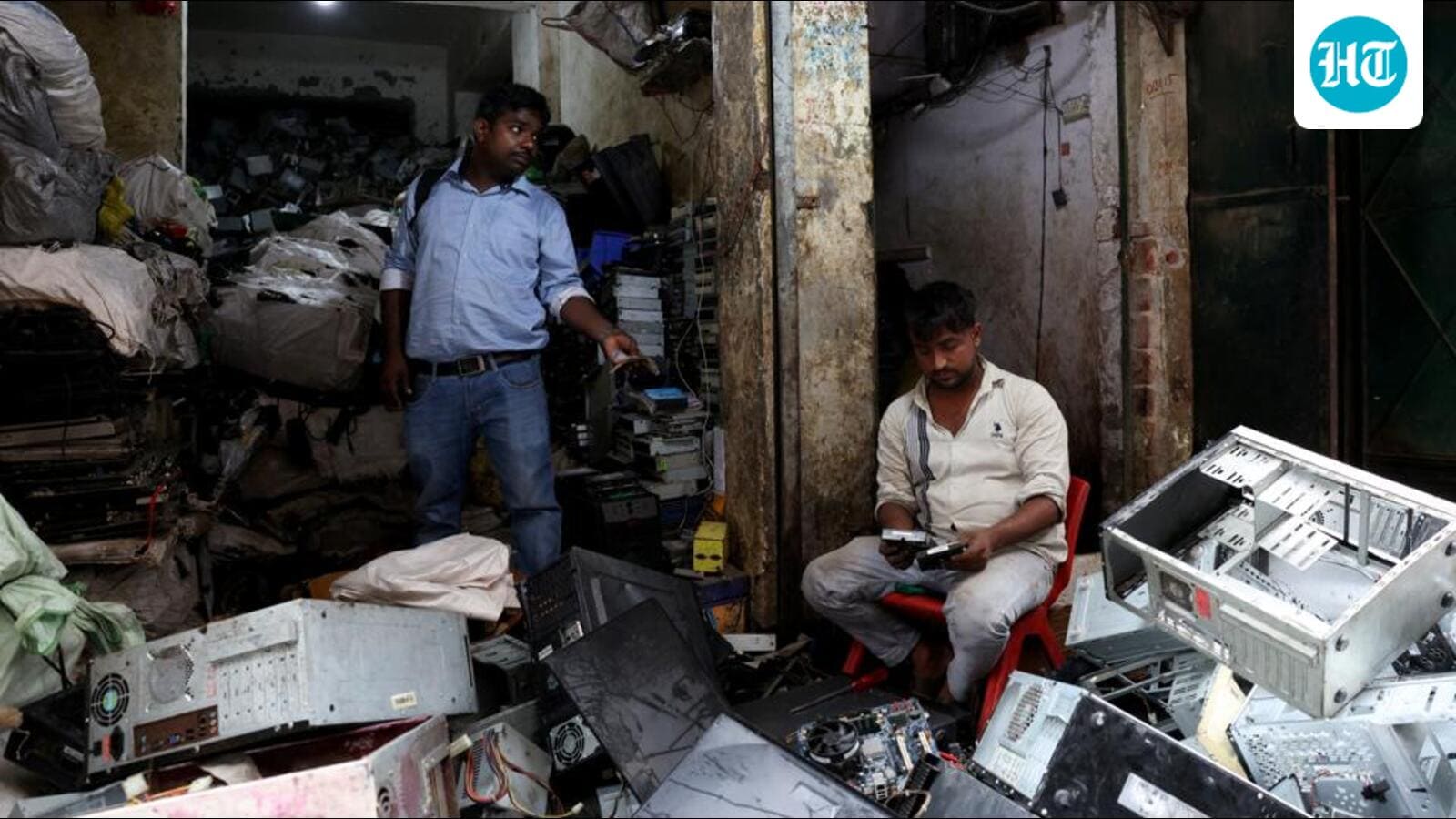India stands at a critical juncture in its journey towards sustainable development. As one of the world’s fastest-growing economies, it faces the dual challenge of rapid technological advancement and the mounting environmental burden of electronic waste (e-waste). It is estimated that in FY 2024-25, India generated approximately 1.4 million metric tons of e-waste, a figure projected to increase exponentially as digital adoption accelerates. Yet, the country’s recycling infrastructure remains woefully inadequate. The infrastructure for managing e-waste is underdeveloped, and the transition to a circular economy remains incomplete. State intervention is therefore crucial to address these challenges and help India become a circular economy under Atmanirbhar Bharat.
 The infrastructure for managing e-waste is underdeveloped, and the transition to a circular economy remains incomplete. (REUTERS)
The infrastructure for managing e-waste is underdeveloped, and the transition to a circular economy remains incomplete. (REUTERS)
The nascent state of e-waste infrastructure
Despite generating large quantities of e-waste annually, India’s recycling infrastructure is alarmingly underdeveloped. Currently, about 80% of e-waste is handled by the informal sector, where recyclers often lack the technology and expertise to process complex materials safely, leading to environmental degradation and health risks for the workers and nearby communities. This is because formal recyclers face significant barriers, including limited access to capital and inconsistent regulatory enforcement. The small-scale e-waste recyclers, who make up the majority of authorised recyclers, struggle to scale up operations or adopt advanced recycling technologies capable of handling the intricate components of modern electronics.
State intervention is vital to bridge this gap through subsidies, low-interest loans, technical support, and strict extended producer responsibility (EPR) enforcement. Helping recyclers adopt advanced methods will boost capacity, ensure environmental compliance, and cut e-waste’s ecological footprint. Without such support, the industry risks remaining fragmented and unable to meet rising demand for responsible waste management.
Pushing for a circular economy
EPR, which makes producers accountable for their products’ lifecycle, is key to India’s transition to a circular economy. More than a compliance tool, it promotes sustainable production and consumption by mandating recycling and disposal. But without stable pricing and strict enforcement, EPR risks stalling the shift from the linear “take-make-dispose” model to a resource-efficient circular one.
Currently, only a small percentage of India’s e-waste is collected and recycled using technological capabilities to efficiently extract critical minerals, a stark contrast to countries like Germany, where EPR schemes have helped achieve recycling rates of around 50%. A robust EPR system in India could similarly encourage original equipment manufacturers (OEMs) to design products with recyclability in mind, reducing waste at the source. It would also create a market for recycled materials, fostering innovation in recycling technologies and supporting the development of domestic supply chains for critical minerals used in clean energy technologies.
Investor confidence and economic benefits
A transparent and well-enforced EPR framework is not “overregulation”, but a smart industrial policy that signals India’s commitment to sustainability. Stable EPR pricing provides predictability for investors, encouraging them to fund advanced recycling technologies and infrastructure. India’s e-waste management market is projected to reach more than $5 billion by 2032, growing at a compound annual growth rate (CAGR) of more than 13% between 2024 to 2032. This growth potential indicates strong investor interest, but only if the right policies are in place. A robust EPR system would strengthen domestic recycling capacity, create green jobs, and support India’s clean energy supply chains.
Moreover, a robust e-waste management system enhances India’s credibility in global climate negotiations. Backpedalling on EPR, or allowing inconsistent enforcement sends the wrong message to global investors and partners, potentially deterring foreign direct investment in green technologies. Conversely, a strong EPR system positions India as a reliable partner in the global fight against climate change, attracting capital and fostering international collaborations.
The role of OEMs in nation-building
OEMs, as key stakeholders in the electronics supply chain, play a pivotal role in nation-building. Their participation in EPR programs is essential for a sustainable e-waste ecosystem. By collaborating with recyclers, OEMs can share expertise, fund infrastructure upgrades, and establish take-back programs for end-of-life products. Such partnerships enhance recycling efficiency, while supporting India’s economic goals of job creation and industrial growth. Formalising the e-waste sector could create up to 412,000 green jobs by 2030, according to the ILO’s Assessment of India’s Green Jobs and Just Transition Policy Readiness, with many in MSME-led repair and recycling.
OEMs are unlikely to act without clear incentives and regulatory clarity. The State must provide a predictable policy framework that rewards compliance, penalises violations, and offers tax benefits for eco-friendly designs. Without strict mandates and support, OEMs may continue prioritising short-term gains over sustainability, weakening the e-waste ecosystem.
State intervention is thus a strategic imperative. Stronger EPR enforcement, MSME support, and OEM participation can build a robust recycling ecosystem, boost investor confidence, create green jobs, and advance a circular economy. With decisive action, India can turn its e-waste challenge into a driver of growth, innovation, and global sustainability leadership.
Arun Goyal is former secretary, Government of India, and former member of the Central Electricity Regulatory Commission. The views expressed are personal
